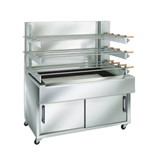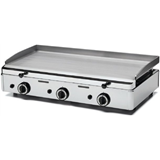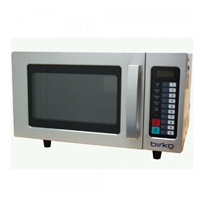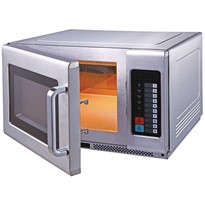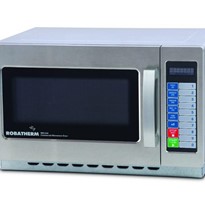So why should you invest in a commercial Microwave over your Domestic unit?
Commercial microwaves use a stirrer system to evenly distribute microwave energy throughout the cavity, rather than relying solely on a turntable to move the food. This helps ensure more uniform heating and faster cooking times, particularly for larger or irregularly shaped items that may not rotate effectively on a turntable.
The stirrer system typically consists of a fan or stirrer blade that rotates or moves the microwave energy around the cavity, dispersing it more evenly. This helps prevent hot spots and cold spots within the food, resulting in more consistent cooking or heating throughout.
By distributing the microwave energy throughout the entire cavity, microwaves with stirrer systems can provide more efficient and uniform cooking, contributing to better food quality and reducing the need for manual intervention, such as stirring or rearranging food during the cooking process.
Commercial microwaves are larger and have higher capacities compared to residential ones. They are designed to handle a high volume of food at once, making them suitable for restaurants, cafeterias, and other food service establishments. Commercial microwaves are more powerful than residential ones. They usually have higher wattage, allowing them to cook food faster and more efficiently. Residential microwaves typically range from 600 to 1200 watts, while commercial models can range from 1000 to 3000 watts or even higher. Commercial microwaves are built to withstand heavy use and are constructed with more durable materials compared to residential microwaves. They are designed to operate continuously for extended periods without overheating or breaking down. Residential microwaves, while still durable for everyday use, may not be able to handle the demands of a commercial kitchen.
Commercial microwaves often come with additional features tailored to professional kitchens, such as programmable controls, multiple power levels, and advanced cooking options like convection and combination cooking. Commercial Microwave is easier to Clean as they do not have a turning plate.
Overall, the key differences between commercial and residential microwaves lie in their capacity, power, durability, features, and intended use. Commercial microwaves are designed for high-volume, continuous use in professional settings, while residential microwaves are suited for personal or family use in homes.
At Hospitality Connect we have a large Range of Commercial Microwave to Suit everyone needs and budget.


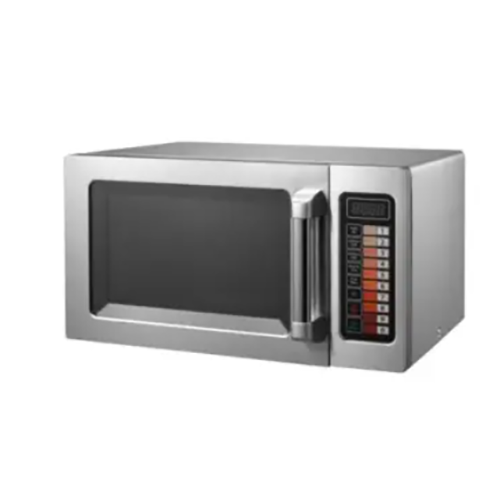





-160x160-state_article-rel-cat.png)






